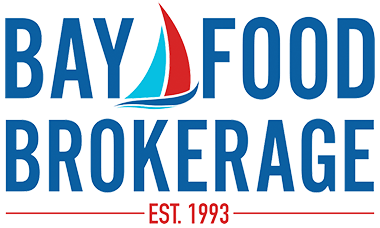
Why manufacturers should pursue food sustainability certifications
With Earth Day approaching on April 22, it’s fitting to focus on food sustainability and the benefits it can bring manufacturers, consumers and our environment.
As our world grapples with the challenges of sustainable development, it’s becoming increasingly important for manufacturers to prioritize food sustainability practices. In fact, manufacturers can pursue certifications that support and recognize their efforts to protect the environment.
In this blog post, you’ll learn why manufacturers should consider pursuing food sustainability certifications and the impact they have on the environment, consumer demand, brand reputation and market positioning.
Importance of food sustainability
Food sustainability plays a vital role in ensuring the well-being of our planet and future generations. By adopting sustainable practices in food production, manufacturers can reduce the strain on natural resources and promote a more balanced ecosystem.
Food sustainability involves practices that contribute to sustainable agriculture, ensuring the long-term availability of crops and livestock. Through responsible farming techniques and efficient use of resources, food manufacturers can minimize environmental degradation and help preserve natural habitats. This approach is crucial in safeguarding biodiversity and preventing the depletion of vital resources.
Impact on the environment and food systems
The impact of food production on the environment is undeniable.
Unsustainable farming practices, such as excessive use of pesticides, deforestation and overfishing, can lead to soil erosion, water pollution and the destruction of ecosystems. On the other hand, responsible food production seeks to mitigate these negative effects, using methods that minimize environmental harm.
Additionally, sustainable food packaging plays a pivotal role in reducing waste and promoting eco-friendly practices. By adopting food packaging materials that are recyclable, biodegradable and/or made from renewable resources, manufacturers can significantly reduce their ecological footprint. Eco-friendly packaging not only benefits the environment but also enhances the overall sustainability of food systems.
Consumer demand for sustainable food products
A shift in consumer behavior has led to a significant increase in the demand for sustainable food products. Grocery store shoppers are increasingly conscious of the environmental impact of their purchases and prefer products that align with their values. As a result, manufacturers who pursue food sustainability certifications gain a competitive edge in the market and may attract a wider consumer base.
Moreover, grocery retailers are recognizing the importance of sustainable food production and packaging. They are keen to partner with food manufacturers who prioritize sustainable practices that align with their own brand values and customer preferences. By obtaining food sustainability certifications, manufacturers can establish strong partnerships and secure placement for their products in retail stores.
Benefits of pursuing food sustainability certifications
Pursuing food sustainability certifications can bring an array of benefits to manufacturers.
Firstly, these certifications demonstrate a commitment to sustainable practices, which can enhance brand reputation. Many consumers – especially Gen Zers and Millennials – are more likely to trust and purchase products from manufacturers who prioritize sustainability.
Secondly, obtaining these certifications can open doors to new markets and increase market positioning. As the demand for sustainable food products continues to rise, manufacturers with certifications may have an advantage over their competitors.
Thirdly, food sustainability certifications can drive innovation and efficiency in operations. By prioritizing sustainability, manufacturers are compelled to find creative solutions to reduce waste, conserve resources and optimize their production processes. This focus on innovation not only helps sustain the environment but also could boost operational efficiency and reduce costs.
Types of sustainability-related food manufacturing certifications
There are many types of certifications that food manufactures can pursue that relate to the environment. Here are a few:
USDA Organic Certification
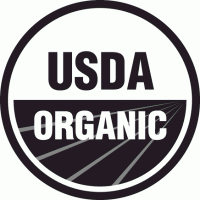 Obtaining USDA Organic certification signifies a commitment to sustainable practices and eco-friendly food production. By adhering to the strict guidelines set by the USDA, manufacturers can help reduce environmental impact through the use of natural fertilizers, crop rotation and pest management techniques.
Obtaining USDA Organic certification signifies a commitment to sustainable practices and eco-friendly food production. By adhering to the strict guidelines set by the USDA, manufacturers can help reduce environmental impact through the use of natural fertilizers, crop rotation and pest management techniques.
This certification also promotes biodiversity, minimizes pollution, and supports healthy soil and water resources. Overall, pursuing USDA Organic certification not only benefits the environment but also sets a high standard for food production that prioritizes sustainability.
B Corp Certified
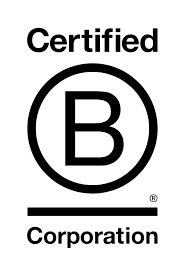 When it comes to sustainability-related food manufacturing certifications, the B Corp Certification stands out as a recognized and respected standard. Awarded to companies that meet rigorous social and environmental performance, accountability and transparency requirements, becoming a Certified B Corporation demonstrates a commitment to using business as a force for good.
When it comes to sustainability-related food manufacturing certifications, the B Corp Certification stands out as a recognized and respected standard. Awarded to companies that meet rigorous social and environmental performance, accountability and transparency requirements, becoming a Certified B Corporation demonstrates a commitment to using business as a force for good.
Through this certification, companies showcase their dedication to not only producing quality products but also prioritizing their impact on society and the environment. Brands with the Certified B Corporation stamp are held to high standards and are evaluated on criteria such as employee benefits, community involvement and environmental practices.
Bay Food Brokerage proudly represents clients that are Certified B Corporation companies. This includes Tillamook County Creamery Association and The GFB Gluten Free Bites.
Regenerative Organic Certified®
 Regenerative organic agriculture is a collection of practices that focus on regenerating soil health and the full farm ecosystem. The Regenerative Organic Certified credential is a new certification for food, fiber and personal care ingredients. It represents the highest standard for organic agriculture in the world and has stringent requirements for soil health, animal welfare and social fairness.
Regenerative organic agriculture is a collection of practices that focus on regenerating soil health and the full farm ecosystem. The Regenerative Organic Certified credential is a new certification for food, fiber and personal care ingredients. It represents the highest standard for organic agriculture in the world and has stringent requirements for soil health, animal welfare and social fairness.
At Bay Food, clients White Oak Pastures and Zack’s Mighty go above and beyond to support sustainability and hold the Regenerative Organic certification.
UpCycled Certified
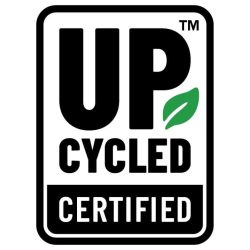 The UpCycled Certified program is a relatively new certification that focuses on reducing food waste by transforming byproducts or surplus ingredients into new products. This certification ensures that the food manufacturing process is not only sustainable but also contributes to the reduction of waste.
The UpCycled Certified program is a relatively new certification that focuses on reducing food waste by transforming byproducts or surplus ingredients into new products. This certification ensures that the food manufacturing process is not only sustainable but also contributes to the reduction of waste.
By upcycling food ingredients, companies can create new value from resources that would have otherwise been discarded. This benefits both the environment and the manufacturer’s bottom line.
Climate Neutral Certified
 As consumer awareness about climate change and environmental impact grows, obtaining a Climate Neutral Certification is a smart move for food manufacturers. This certification demonstrates a commitment to reducing greenhouse gas emissions and promoting sustainable practices.
As consumer awareness about climate change and environmental impact grows, obtaining a Climate Neutral Certification is a smart move for food manufacturers. This certification demonstrates a commitment to reducing greenhouse gas emissions and promoting sustainable practices.
The Climate Neutral Certified Label is an independent and trusted climate action label for companies and consumers. Managed by nonprofit The Change Climate Project, this certification is backed by a rigorous Climate Neutral Certified Standard.
American Humane Certified
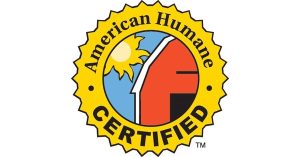 The American Humane Certified program is the first independent, third-party animal welfare certification in the U.S., ensuring the humane treatment of farm animals. With over 200 science-based standards, it covers aspects such as adequate space, air and water quality, and access to natural elements.
The American Humane Certified program is the first independent, third-party animal welfare certification in the U.S., ensuring the humane treatment of farm animals. With over 200 science-based standards, it covers aspects such as adequate space, air and water quality, and access to natural elements.
Although primarily focused on animal welfare, by promoting responsible farming practices, this certification indirectly supports environmental sustainability by advocating for the maintenance of natural habitats and the health of local ecosystems.
Chicken producer Springer Mountain Farms is one of Bay Food Brokerage’s clients that is American Humane Certified.
Conclusion
In conclusion, manufacturers should consider pursuing food sustainability certifications to align with the needs of our changing world. These certifications have far-reaching benefits, including environmental stewardship, meeting consumer demand, enhancing brand reputation and driving innovation.
By adapting sustainable practices and obtaining relevant certifications, manufacturers not only contribute to a better future but also position themselves as leaders in a market that prioritizes sustainability.
Happy Earth Day!
Considering taking the leap and propelling your brand toward a more sustainable future? Contact us today to learn how we can help you leverage your food sustainability efforts.
